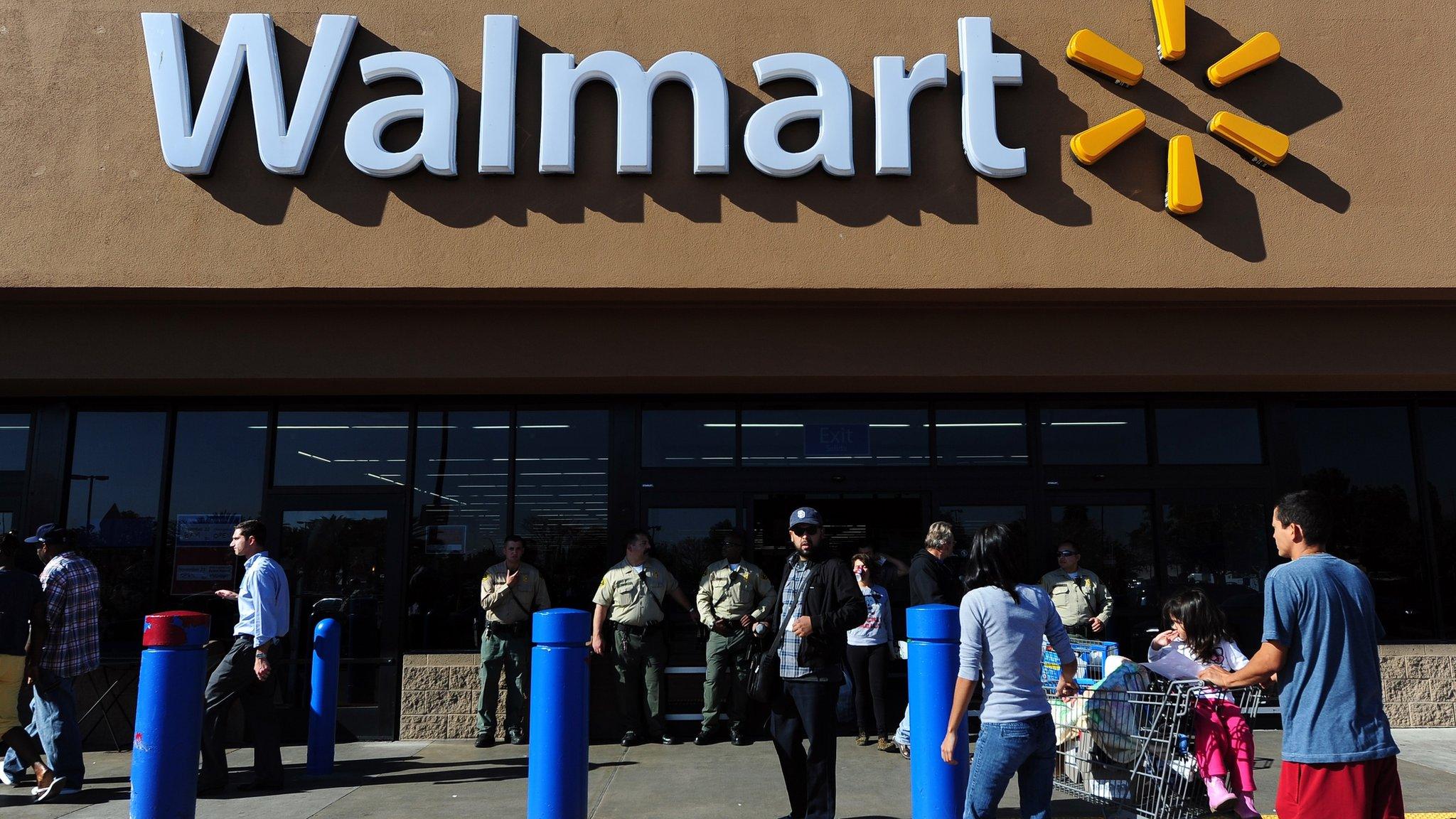Amazon: Is fast delivery a fresh enough idea to tempt customers?
- Published

Jess Reeves already buys the family's food online, but what will she think of AmazonFresh?
Jess Reeves, 31, is at work today, but during her lunch break she takes some time to look over Amazon's new grocery delivery service.
At first it isn't easy to find AmazonFresh, presumably it's not very prominent on the site because it is only on offer in parts of London. But eventually it's likely to be extended nationwide, assuming it catches on here.
Jess is a fan of buying groceries online and has been using Ocado until now. She is perfectly satisfied with the service she gets, but still, she's not ruling out trying something new. And once she finds the right page, Jess is quite impressed.
"The layout is really good, actually much easier than Ocado's. The pictures of the products are bigger."
The offer is broad: the basics of course, but also the latest fashionable foodie products: coconut water, chocolate-covered goji berries, fresh quinoa and wheatberry salad. And if you order in the morning you can take delivery in time to put the dinner on that same evening, something none of the supermarkets are offering.
"If I scroll down I can see fruit and veg and meat," she says.
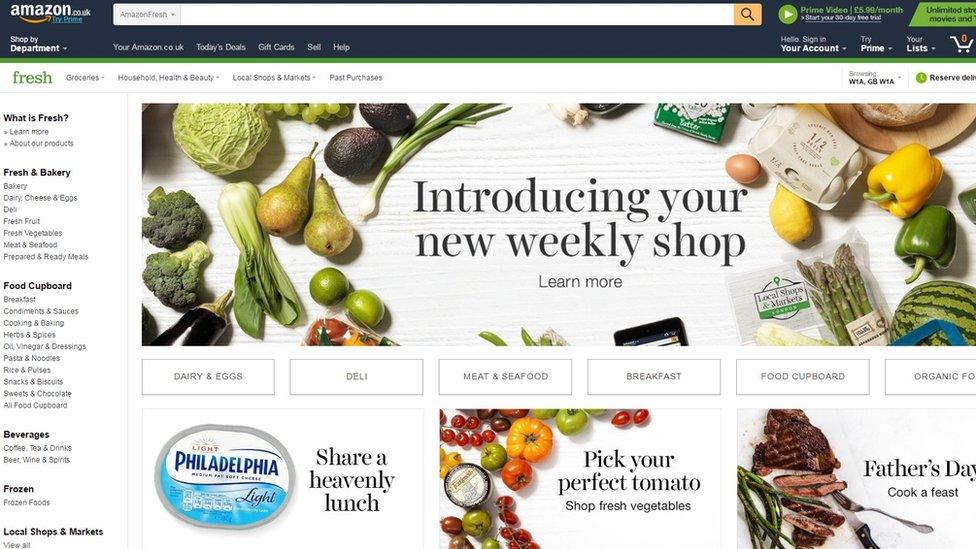
Amazon's website uses large, clear images
"I'm looking at bacon and the prices are good, £1.78 for 250g, about normal." But the brand, Yeoman and Tiller, isn't one she's heard of.
"That doesn't bother me as long as the price is good and it's a good weight," she says. And she can find the kids' meals that she usually buys for her three-year-old son Finnley, though she says elsewhere they're often on offer; here they aren't.
But it would be a bit of a hassle to learn a whole new system, she says. "I'm so used to Ocado, it takes me five minutes."
These are the things she wants when it comes to online shopping: delivery in hourly slots, that arrive on time; not too many substitutions if a product isn't available. And the products should have a good shelf life. So Amazon will have to meet those standards to have a hope of winning her over.
Most of all, though, it depends on price.
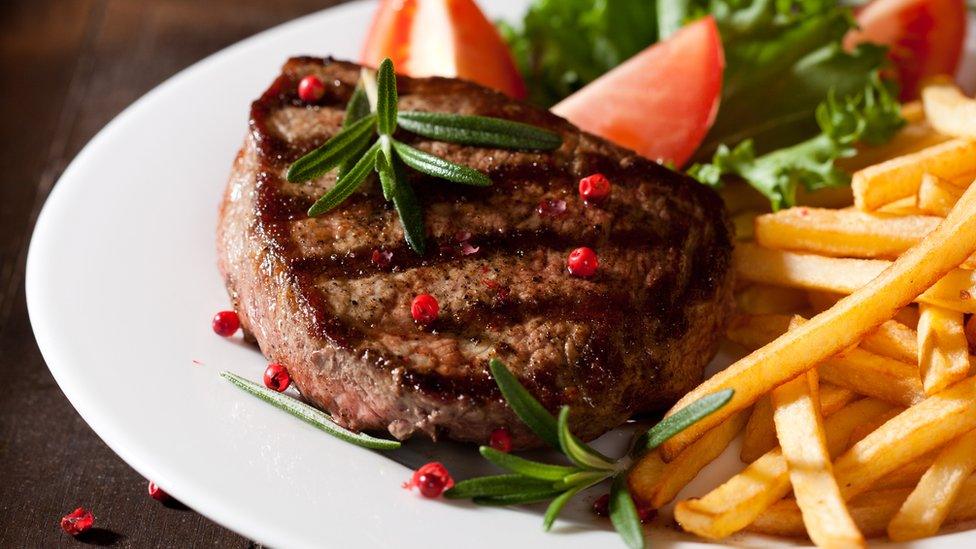
Amazon hopes the opportunity to order tonight's dinner at lunchtime will win over new customers
Amazon has issued a press release, showing the cost of a basket of goods. The Grocer magazine has calculated the cost of those goods including bread, cheese and Ferrero Rocher at the big supermarkets and while Amazon's basket totals £58.93, the other big four supermarkets come out with an average of £63.26 for the same products.
It's true that while a pack of four toilet rolls is cheaper on Amazon, and that only Asda matches them on 300g of broccoli, fresh raspberries and strawberries are a better bargain at Tesco.
And if you are fussy about knowing where your food is from, the meat and ready meals on AmazonFresh are made by a company called Foddr, a trademark that was registered last year and doesn't seem to have much of an online presence.
Then there are the delivery fees. In the US, Amazon charges customers $299 (£206) a year to belong to the food delivery service.
But maybe the company realises that would be hard to lure in British shoppers with a high initial fee, since here you can already have your shopping delivered by Tesco for as little as £1 on a weekday if you plan ahead, or for free from Sainsburys if you spend enough and stick to the least popular timeslots.
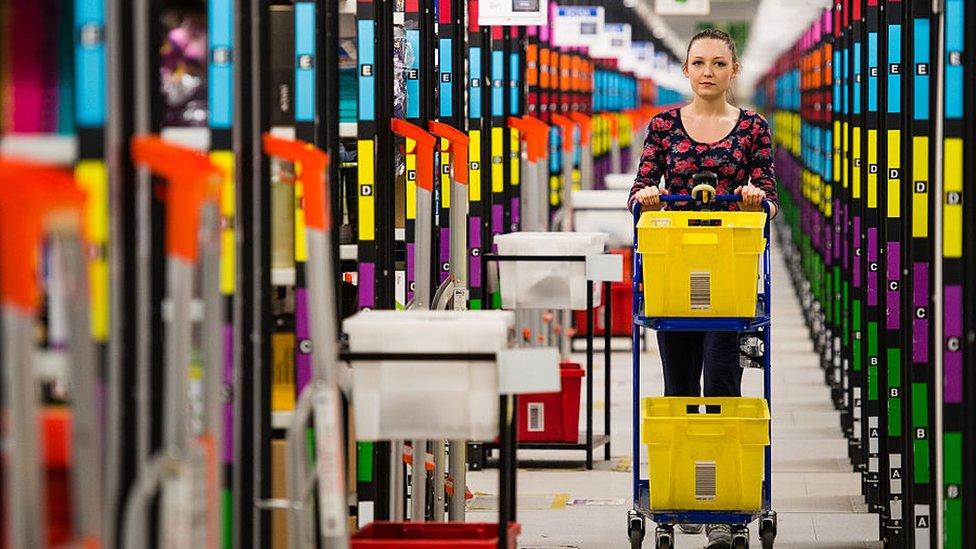
Amazon will have to gear up for food deliveries in the same way it has for non-perishable products
Here AmazonFresh is charging £6.99 per month for unlimited deliveries (with a £40 minimum spend for each). But first you have to be a member of Amazon Prime, which is £79 a year but brings a bundle of other services including films and music and free delivery of other orders.
So would Jess give it a go? At that price she says probably not. "I think that's quite expensive."
"If you've paid the £79 I think the delivery should be free or lower."
She'd only try it "if a lot of people said it was brilliant, brilliant, brilliant".

The potential market
37% of online grocery shoppers say they've purchased a food or grocery product from Amazon in the last month
Younger, working families based in London are the most likely to say they've done this
Health and beauty products, pet food, pet care products and confectionery predominate
40% of shoppers who have previously bought groceries from Amazon say they would consider buying fresh food from the site
Source: food and grocery researchers, IGD

Apart from the obvious challenge of luring customers, it won't necessarily be plain sailing for Amazon. The logistics of providing a seven-day-a-week fresh food delivery service are considerably more complicated than Amazon's original business.
"There's no question that selling food is the biggest challenge Amazon has ever faced," says veteran retail analyst Richard Hyman.
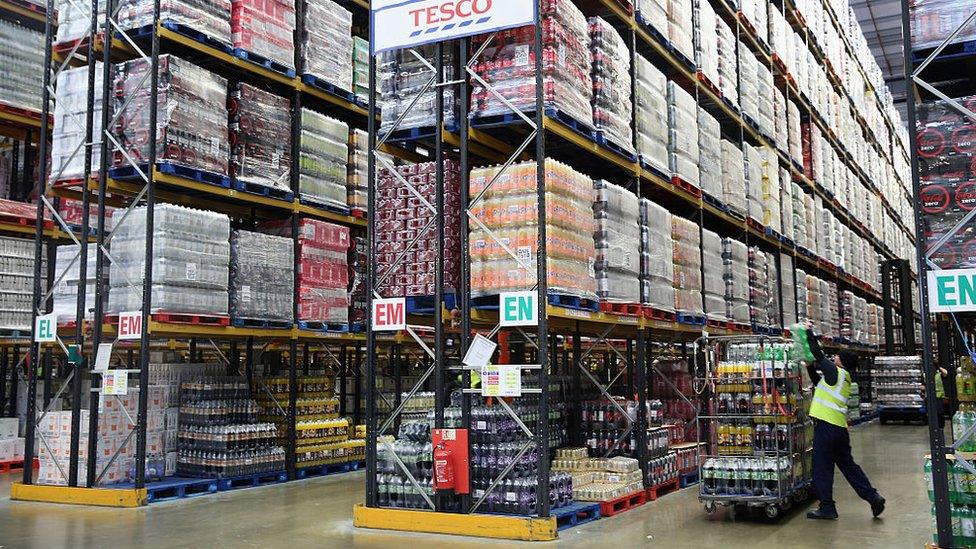
Grocery deliveries are a huge logistical challenge
"Books and DVDs are physically relatively simple to handle, they have a lengthy shelf life.
"If you don't sell a book in a few months, it's still in the same condition that it was. If you don't sell a salad or a cucumber, very, very quickly it's going to represent as a loss in your profit and loss account. Selling fruit and veg is very challenging and many have failed in the attempt."
But he still thinks for the big four supermarkets the arrival of Amazon is a "nightmare scenario".
"Only a fool would bet against them eventually cracking it."
- Published9 June 2016
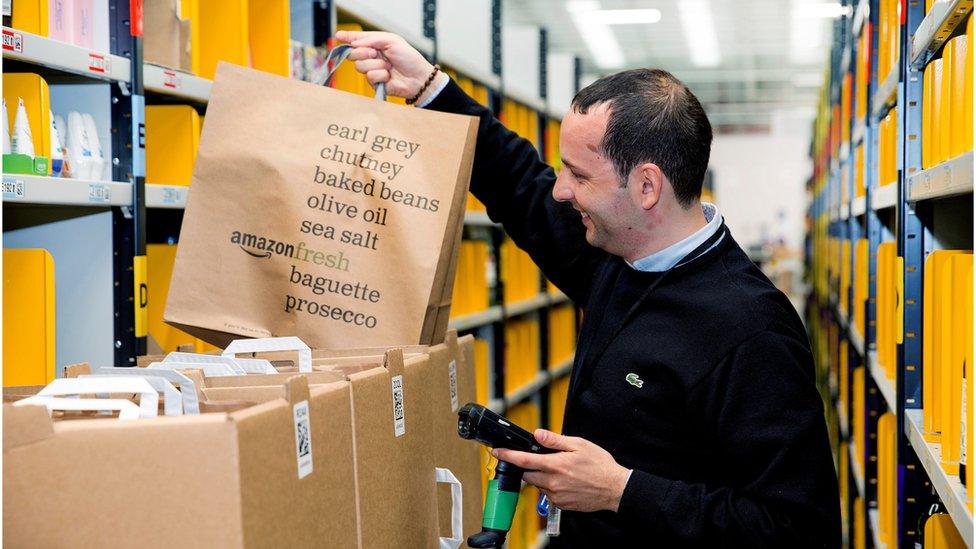
- Published3 June 2016
